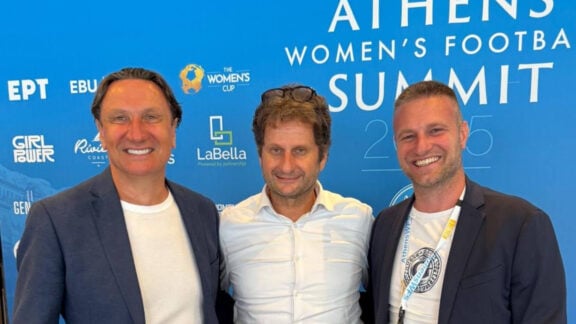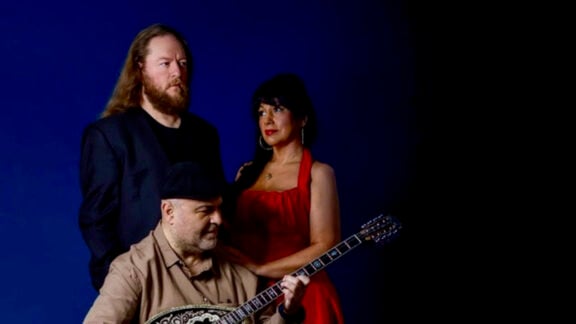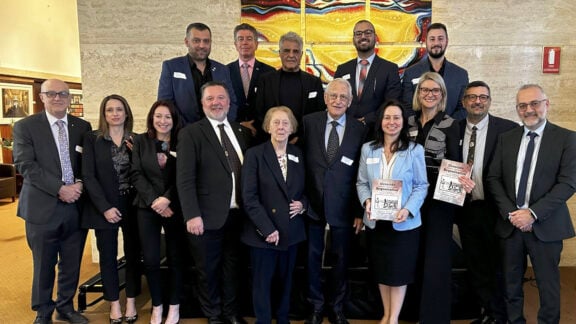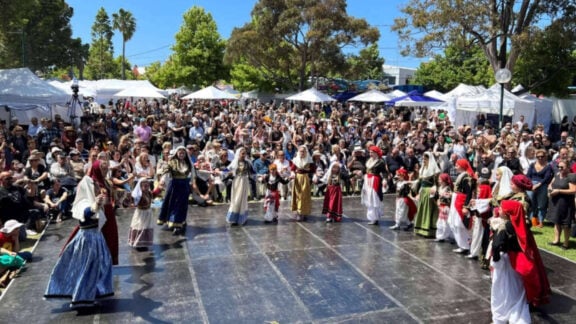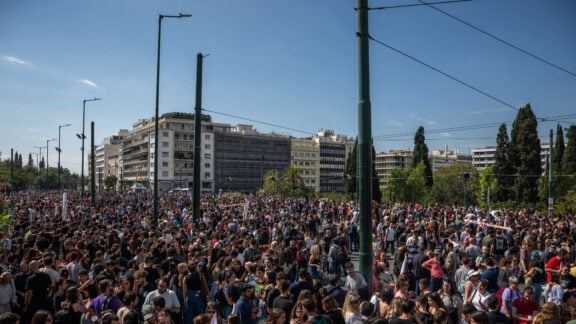In The Strength of Fragile Days, Pierenrico Gottero offers us not simply a novel but a contemplative elegy, an inward odyssey of subtle psychological depth, lyrical grace, and spiritual inquiry. At first glance, it may appear to chart a familiar course: a man adrift, a geographical escape, a redemptive Mediterranean backdrop. But this is a narrative that resists clichés, deftly deconstructing the seductive myth of escape, revealing instead a deeper truth: that no external paradise can substitute for the inner labour of becoming. Greece, the ostensible destination, is not salvation. Rather, it is the mirror that compels the protagonist to confront himself, and Corfu, that mythopoetic island bathed in myth and light, becomes the symbolic threshold where the self is stripped, examined, and remade.
At the heart of this reflective narrative is Marco Lentini, a young man burdened by the invisible scaffolding of expectations, disenchanted with a life dictated by convention. As Gottero frames it in the novel’s opening conceit, Marco’s departure to Greece is never truly about fleeing from the world. Rather, it is about “moving toward himself.” The novel interrogates the very notion of escape. In an implicit response to Henri Laborit’s famed dictum: “In times like these, escape is the only way to stay alive and keep dreaming,” Gottero proposes the opposite: that escape, seductive though it may seem, is not a solution, but a postponement. The work of transformation is not external but internal, and it requires, above all, vulnerability, the courage to live through fragile days.
This ethos is encapsulated in the epigraph Gottero borrows from Ovid: Caelum non animum mutant qui trans mare currunt: “They change their sky, not their soul, who cross the sea.” The entire novel unfolds as a meditation on this ancient truth. Marco’s journey to Greece, and especially to Corfu, functions not as a physical voyage but as a psychospiritual crucible. Like the lobster of Panaghiotis’ myth, revealed at the humble taverna “O Astakos,” Marco must shed his shell, retreat into silence and softness, and allow the painful process of regrowth to occur. Corfu, then, is not a utopia—it is The Great Rock, the metaphorical refuge where one undergoes inner recalibration before emerging again into the world.
Gottero draws upon a symbolic economy rich with classical and Christian resonance. In Marco’s journey, there are subtle echoes of the monastic retreat, of the desert fathers who fled not to abandon the world but to wrestle with the self in the crucible of solitude. Greece, and particularly its Ionian manifestation in Corfu, is not exoticised; it is contemplative, quiet, and unyielding. It does not offer Marco comfort but reflection, not solutions but space. In this, Gottero constructs an ethical geography: the Aegean is not a tourist fantasy but a landscape of reckoning.

The characters who populate Marco’s journey are not dramatis personae in the usual sense, but interlocutors—bearers of insight who reveal, by contrast or compassion, the shape of the protagonist’s internal landscape. The Tuscan widower, who has forged his own form of resilience after the death of his wife, offers Marco a model of sorrow dignified by acceptance. The restaurateur, with his broken English and rich metaphors about shedding one’s shell, serves as a rustic philosopher whose hard-earned wisdom contains more theology than the pages of any manual. Then there is young Dimitri, “The Sponge,” whose gift is his quiet attentiveness, a child who sees the world through others’ eyes, representing the uncorrupted potential that Marco once had and perhaps might recover.
These characters contribute to what Mikhail Bakhtin would call a “polyphonic” narrative space. The novel does not impose a singular ideological voice; instead, it allows voices, experiences, and philosophies to co-exist, contributing to the slow sedimentation of Marco’s self-understanding. The novel is dialogical in its very structure, echoing also the classical model of the katabasis, the descent into an inner underworld from which the hero does not emerge unscathed, but reborn.
Gottero’s prose is spare yet saturated with affect, at times almost liturgical in cadence. He constructs a rhythmic movement between stillness and speech, inner thought and outward observation. There are no grand plot twists; the drama is internal, psychological, spiritual. It unfolds in silence, in encounters, in the flicker of thought at twilight. This restraint serves the story’s deeper themes. Fragility, as the title makes clear, is not a defect but a crucible. Days that are “fragile” are those when the protective casing of routine is cracked open and the raw matter of the self is exposed. It is in these days, Gottero suggests, that transformation is possible, rather than in strength, in the willingness to be undone.
This is nowhere more powerfully articulated than in the novel’s final passages, when Marco reflects:
“I think you can only truly experience that sense of absolute freedom—that feeling that makes you feel completely alive—at two points in life: in the unbridled recklessness of youth, or in the wise awareness of maturity… The more you’ve experienced that freedom in your youth, the more you’ll do anything to find it again as an adult. It’s a natural calling, a primal need, something you feel in your bones and in your skin. But precisely for that reason, it’s not for everyone. It takes courage.”
Here, Gottero traces the contours of what Viktor Frankl might call “the search for meaning,” a yearning that cannot be satisfied by distraction or escape, but only through the courage to live consciously. Between the impetuosity of youth and the serenity of maturity, lies the middle terrain of suffering, failure, repetition, and reflection. Marco’s return from this middle terrain, this inward desert, is the quiet arc of the novel. He is not triumphant but tempered. And that is the whole point.
The novel’s philosophical undertow also draws from the existential tradition. One senses the influence of Albert Camus, not in tone but in tension. Like Camus’ The Fall or A Happy Death, The Strength of Fragile Days confronts the paradox of human longing: the desire to remake one’s life entirely, yet being bound to the self that one cannot outrun. And yet, unlike Camus, Gottero does not leave the reader in absurdism. His novel is suffused with a redemptive humanism, a belief, quiet but firm, that it is possible to become whole again, but only by descending into brokenness.
What is particularly striking is Gottero’s refusal to romanticise either place or person. Greece is not idealised; its role is that of a catalyst, not a cure. As the author notes in his own reflection, “Greece—and especially Corfu—is not a paradise to be reached; that paradise can only be found within ourselves.” In this sense, Corfu becomes a “topos” of metanoia, the Greek word for repentance, which literally means to change one’s mind, or more deeply, to reverse one’s gaze. It is in Corfu that Marco turns inward, sees himself not as a failed escapee, but as a man learning how to inhabit his own life with sincerity.
The novel’s structure mirrors the process it describes. It begins with distance: Athens, disorientation, the impulse to abandon everything. It moves through encounters, memories, digressions. And it ends not with arrival but with return—not to a former place, but to a deeper self. In this, Gottero’s work shares spiritual affinities with the Orthodox understanding of the prodigal son, not as a morality tale, but as a movement from estrangement to homecoming.
Ultimately, The Strength of Fragile Days is a profoundly humane and quietly radical book. In a culture that idolises productivity, novelty, and hardened identity, Gottero offers us a counter-narrative: that the soul’s most important work often takes place in stillness, in smallness, in the fragile in-between. That identity is not discovered through conquest but shaped through encounters. That Greece—ancient, luminous, and unresolved—can function not as a romantic elsewhere but as a place that invites interiority, reverence, and silence.
This is a novel for those who have grown weary of movement without meaning. For those who suspect that selfhood is something not constructed but uncovered. For those who understand that sometimes, the only way forward is the courage to stop and sit with oneself beneath the olive tree, to listen to the sea, and to wait until a new shell grows.
In The Strength of Fragile Days, Gottero offers not escape, but encounter, not solution, but surrender. And in so doing, he reminds us that the truest strength often lies precisely in our willingness to be fragile.

